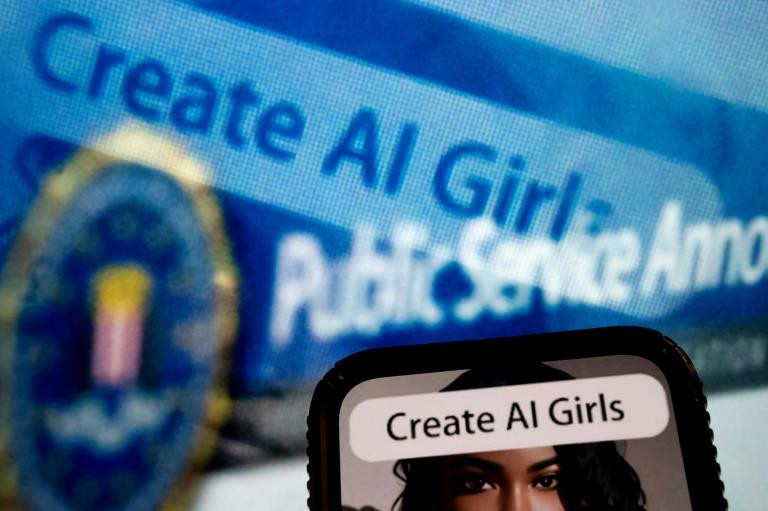milyon88 apk latest version
Donaldson Company, Inc. (NYSE:DCI) Shares Bought by Advisors Asset Management Inc.All the hard work the Vikings put in on Sunday afternoon at Soldier Field almost fell by the wayside after they failed to recover an onside kick in the final minute. That paved the way for Chicago Bears kicker Cairo Santos to send the game into overtime with a 48-yard field goal as time expired. ADVERTISEMENT As proud as head coach Kevin O’Connell was that the Vikings still managed to escape with a 30-27 overtime win, he also was irked that lack of execution on the onside kick nearly cost them. What went wrong? Though it looked like nothing more than a fluky bounce, it was actually a misread by tight end Johnny Mundt that resulted in the ball hitting him. Asked about the particular play, special teams coordinator Matt Daniels said as soon as Mundt realized it was going to be a watermelon kick, he should’ve attacked the ball rather than engaged in a block. “He’s got to have some awareness right there,” Daniels said. “He didn’t see where the ball was at.” The use of the watermelon kick has become much more common across the NFL over the past few seasons. It’s executed by placing the ball on its side and kicking the point to create a spinning motion. The hope is to create enough spin with the watermelon kick that the ball travels the required 10 yards. The only issue? The rules say the kicking team can’t touch any member of the receiving team on an onside kick until the ball crosses 10 yards. ADVERTISEMENT That’s why Daniels has stressed to his players the importance of attacking the ball in those situations. “That’s the No. 1 thing,” Daniels said. “As soon as we see it’s a watermelon kick, we are going to go get the ball.” After suffering a hamstring injury over the weekend, linebacker Ivan Pace Jr. has been placed on injured reserve. As a result, he will have to miss at least the next month, with the Vikings hoping he can be ready to return by the time the playoffs roll around. It’s a tough blow for the Vikings heading into the home stretch as Pace has developed into a key contributor on defense. As a way to add some depth amid the loss, the Vikings signed linebacker Jamin Davis to their active roster, poaching him from the Green Bay Packers, who had signed him to their practice squad. There might be some untapped potential in Davis considering the Washington Commanders selected him in the first round of the 2021 draft. He has totaled 282 tackles, seven sacks, an interception and a pair of forced fumbles across 50 NFL games. Additionally, the Vikings also activated edge rusher Gabe Murphy from injured reserve. ADVERTISEMENT The benefit of having veteran left tackle David Quessenberry on the roster is that he has proven capable of going into a game on short notice. After stepping up last month when star left tackle Christian Darrisaw went down with a knee injury, Quessenberry had his number called over the weekend when veteran left tackle Cam Robinson left the game with a foot injury. Though there were some ups and downs for Quessenberry in the game, his presence allowed the Vikings to continue to run their offense. “I thought he came in and played really well,” offensive coordinator Wes Phillips said. “The left side really wasn’t an issue with him in there. We weren’t thinking like, ‘Oh god. We’ve got to get chips over there. We’ve got to try to formation these things where we can help him out every play.’ We felt pretty comfortable with him felling in and playing that role.” After being cut by the Vikings over the weekend, cornerback Akayleb Evans was claimed off waivers by the Carolina Panthers. It will be a fresh start for Evans as he looks to get his career back on track. Though he started 15 games for the Vikings last season, Evans barely played at all on defense this season. He was buried on the depth chart behind veteran cornerbacks Stephon Gilmore, Byron Murphy Jr., and Shaq Griffin. Why didn’t it work out for Evans? ADVERTISEMENT “Sometimes it becomes a numbers situation,” defensive coordinator Brian Flores said. “He’s a talented player who has a place in this league. I wish him all the best in Carolina. He’s going to do a great job for them.” ______________________________________________________ This story was written by one of our partner news agencies. Forum Communications Company uses content from agencies such as Reuters, Kaiser Health News, Tribune News Service and others to provide a wider range of news to our readers. Learn more about the news services FCC uses here .Middle East latest: Israel agrees to a ceasefire with Hezbollah in Lebanon starting at 4 am
Pune, Nov 30 (IANS) : Veteran social crusader, Dr Babasaheb Pandurang Adhav (96), alias Baba Adhav broke his 3-day long hunger strike to oppose EVMs after a galaxy of political leaders including Sharad Pawar and Uddhav Thackeray plus others met him here on Saturday evening. The weary-looking Dr Baba Adhav, a medico-cum-labour leader, received Nationalist Congress (SP) President Sharad Pawar, his state President Jayant R. Patil, Shiv Sena (UBT) President Uddhav Thackeray, party MP Sanjay Raut, and later Nationalist Congress Party President Ajit A. Pawar also dropped in at the agitation venue. Around 5 p.m., Dr Baba Adhav bowed to appeals from his supporters and accepted a glass of water offered by Thackeray, symbolising the end of his hunger agitation amidst claps and cheers. “There have been huge discrepancies in the voter turnout figures declared by the ECI, kept changing, the vote-counting processes were allegedly manipulated to give undue advantage to the outgoing MahaYuti, and related aspects. The verdict is an assault on democracy,” said Dr Baba Adhav earlier, speaking to the media. Asserting that the people have a right to know where their votes have actually gone, the frail, but firm, nonagenarian pointed out how the MahaYuti regime doled out cash to women (‘Ladki Bahin’) scheme just before the elections and undermined the state’s delicate financial condition, as Sharad Pawar, 83, nodded in agreement. “The government wants a democracy that gives it a monopoly without any Opposition (party). Therefore it is the duty and responsibility of all citizens to thwart this, and take a firm stance,” urged Dr Baba Adhav. Speaking on the occasion, Thackeray said that “not only the losers like us (Maha Vikas Aghadi), but even the winners (MahaYuti) leaders are coming here”. “Nobody, neither the winners nor the losers believe in the outcome of the state Assembly elections. We are stunned over how we lost, they are shocked at how they won. The reason is clear. ‘Satyameve Jayate’ was killed, but now you (Dr Baba Adha) have revived it and we are fully with you,” said Thackeray. The Shiv Sena (UBT) President said this agitation was like a spark but it would ignite into a huge blaze, and lauded Dr Baba Adhav for carrying out the agitation at his advanced age and “inspiring all of us” to continue the fight. “We have also seen and heard how money power was brutally used in the polls... All have watched the videos of (Bharatiya Janata Party) leader Vinod Tawde (in Palghar, on November 19). We have seen the shower of schemes. But what the MahaYuti did was to give anaesthesia to all its projects to complete its ‘power operation’ quickly,” said Thackeray without mincing words. He also called upon the top leaders of the MVA parties NCP (SP)-Shiv Sena (UBT)-Congress to follow in Dr Baba Adhav’s footsteps, and carry forward the fight against EVMs, even as the Election Commission of India (ECI) invited a Congress delegation to discuss its grievances (December 3) on the state poll outcome. The Shiv Sena (UBT) chief rued how the information on elections is not available under RTI, how people’s rights are being flouted, while the EVM-VVPAT receipt is visible, counting of the same is not allowed, thus preventing the people and candidates from knowing whether their vote got registered properly or not, leading to many doubts. Taking potshots at the MahaYuti for the huge delay in government formation, Thackeray said that after getting a brute majority, “instead of going to Raj Bhavan (for the oath), the caretaker CM has gone to his farmland,” and wondered what had gone wrong. “When the MVA government was due to be formed (in November 2019), the President’s rule was imposed... Now, (2024), the term of the legislature has expired, so why is the same not being done now? No one will answer these questions...There is complete uncertainty on the new regime, who could be the CM, ministers, portfolios, etc,” said Thackeray.Russian police raid Moscow nightclubs in LGBTQ+ crackdownZelensky demands response from allies as Putin threatens West with new missile
David D. O’Keefe, PhD, has been named vice president of research development at Sanford Burnham Prebys. His duties will include working with scientists to maximize research funding and increase research capacity at the Institute by nurturing a culture of grant writing and collaboration. He officially joined Sanford Burnham Prebys December 16, 2024. “I’m extremely excited to join the Sanford Burnham Prebys team and work with our visionary scientists to help launch and support bold new research programs,” said O’Keefe. “Sanford Burnham Prebys has a long history of translating scientific innovation into improved patient outcomes, and I look forward to helping build upon this discovery pipeline.” O’Keefe will oversee a team responsible for advancing the Institute’s mission by identifying research trends, developing diverse and sustainable funding strategies, and helping faculty craft compelling grant proposals. His initial focus will be to support nearly one dozen new assistant professors recruited to Sanford Burnham Prebys over the past 18 months, thanks to a transformational gift from philanthropist T. Denny Sanford. “Part of Dave’s portfolio will be to help ensure these new, amazing scientists, all still in the early stages of their careers, have strong strategies for obtaining funding from federal, state, private and philanthropic sponsors,” said Kurt Marek, PhD, who was appointed the institute’s first chief research development officer in August. In addition, O’Keefe will spearhead development of large, complex projects and manage proposals for scientific efforts that span disciplines, including the institute’s four disease-focused centers and two enabling technology centers. He will also provide guidance and hands-on mentorship to graduate students and postdoctoral scholars at Sanford Burnham Prebys as they begin to secure their own training grants and funding support. O’Keefe comes to Sanford Burnham Prebys from the Salk Institute where he served most recently as senior director of research development, helping to devise funding strategies to support both individual investigators and Salk’s scientific priorities. Prior to his tenure at Salk (2014-2024), O’Keefe was a freelance science writer and a postdoctoral fellow and staff scientist at the Fred Hutch Cancer Center in Seattle, where he conducted independent research characterizing the genes and signaling pathways that control tissue morphogenesis in fruit flies, a model organism in science. Morphogenesis is the biological process by which a cell, tissue, or organism adopts a particular shape during development. O’Keefe received his doctorate in neurosciences from the University of California San Diego and Bachelor of Sciences degree in biological sciences from Stanford University.Serbian authorities spyware on the phones of dozens of journalists and activists, Amnesty International said in a on Monday. In the document entitled “A Digital Prison: Surveillance and the suppression of civil society in Serbia,” the non-governmental organization cited digital forensic evidence and testimonies from activists who said they were hacked in recent months. This news comes as the Serbian government has allegedly been civil society, journalists, and environmental activists in response to growing anti-government sentiment, which recently has manifested in . According to the data presented in the report, the software was in most cases installed during police interrogations, arrest, or even informal conversations when the smart phones of the surveilled were confiscated. Serbian authorities allegedly used technologically advanced commercial spyware, such as and , which are specifically developed for law enforcement agencies to extract data from phones by circumventing passcodes. However, authorities allegedly also employed a previously unknown software called NoviSpy, which might be home-grown and can be used to extract sensitive data as well as to remote-control the microphone and camera on many Android devices. While the Serbian government has not responded to the findings of the research, Cellebrite vowed to investigate any use that would be violating human rights. While spyware is commonly developed for law enforcement to monitor organized crime, it has been increasingly used by governments to on their critics. In the EU, and have both been accused of purchasing and using this software to spy on journalists and activists. Under European Human Rights Law, every interference with the that is not necessary and proportionate is illegal, especially when it comes to sensitive data detailing personal information. Supreme Court upheld wartime detention of Japanese-Americans On December 18, 1944, the US Supreme Court decided , upholding the wartime relocation of Japanese Americans to internment camps.Read , issued by President Roosevelt on February 19, 1942, under which the internments were authorized. View , collected by the University of Utah Library. International Migrants Day December 18 is , marking the 1990 adoption of the International Convention on the Protection of the Rights of All Migrant Workers and Members of Their Families.
- Previous: milyon88 apk download
- Next: milyon88 app login register philippines




